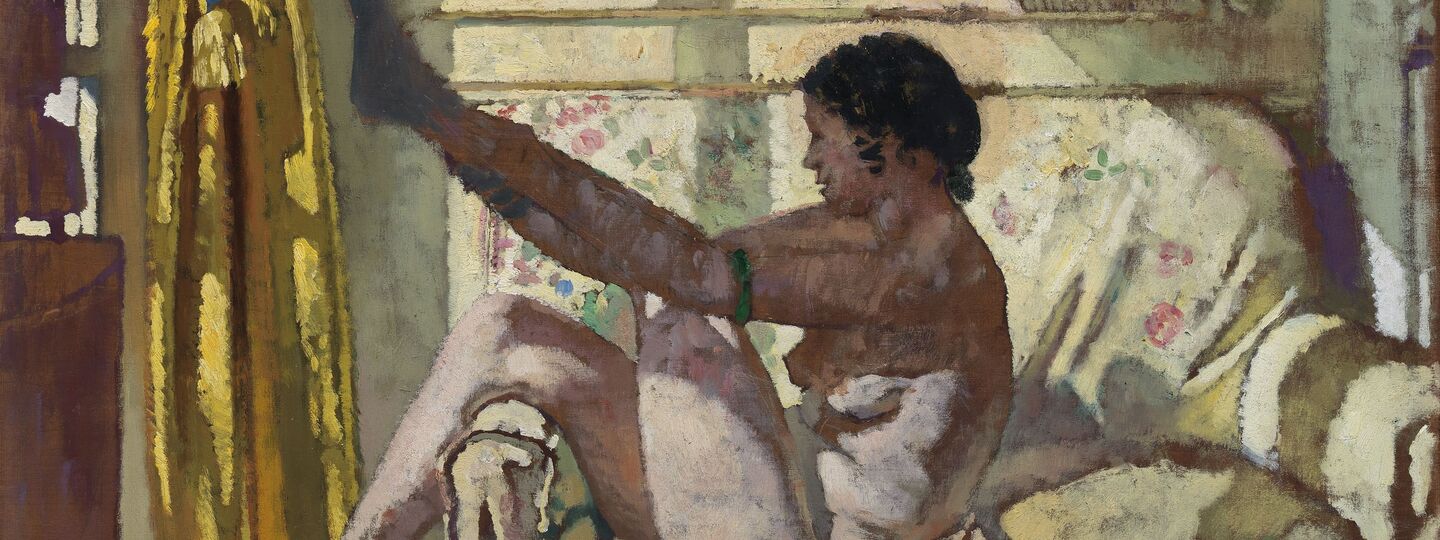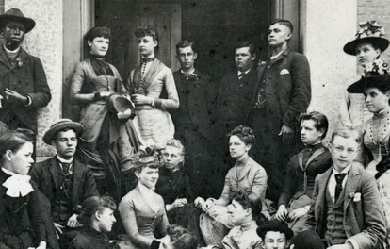
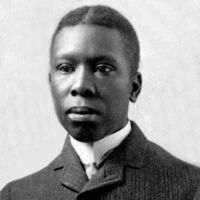
Paul Laurence Dunbar was the first African-American poet to garner national critical acclaim. Born in Dayton, Ohio, in 1872, Dunbar penned a large body of dialect poems, standard English poems, essays, novels and short stories before he died at the age of 33. His work often addressed the difficulties encountered by members of his race and the efforts of African-Americans to achieve equality in America. He was praised both by the prominent literary critics of his time and his literary contemporaries. Dunbar was born on June 27, 1872, to Matilda and Joshua Dunbar, both natives of Kentucky. His mother was a former slave and his father had escaped from slavery and served in the 55th Massachusetts Infantry Regiment and the 5th Massachusetts Colored Cavalry Regiment during the Civil War. Matilda and Joshua had two children before separating in 1874. Matilda also had two children from a previous marriage. The family was poor, and after Joshua left, Matilda supported her children by working in Dayton as a washerwoman. One of the families she worked for was the family of Orville and Wilbur Wright, with whom her son attended Dayton's Central High School. Though the Dunbar family had little material wealth, Matilda, always a great support to Dunbar as his literary stature grew, taught her children a love of songs and storytelling. Having heard poems read by the family she worked for when she was a slave, Matilda loved poetry and encouraged her children to read. Dunbar was inspired by his mother, and he began reciting and writing poetry as early as age 6. Dunbar was the only African-American in his class at Dayton Central High, and while he often had difficulty finding employment because of his race, he rose to great heights in school. He was a member of the debating society, editor of the school paper and president of the school's literary society. He also wrote for Dayton community newspapers. He worked as an elevator operator in Dayton's Callahan Building until he established himself locally and nationally as a writer. He published an African-American newsletter in Dayton, the Dayton Tattler, with help from the Wright brothers. His first public reading was on his birthday in 1892. A former teacher arranged for him to give the welcoming address to the Western Association of Writers when the organization met in Dayton. James Newton Matthews became a friend of Dunbar's and wrote to an Illinois paper praising Dunbar's work. The letter was reprinted in several papers across the country, and the accolade drew regional attention to Dunbar; James Whitcomb Riley, a poet whose works were written almost entirely in dialect, read Matthew's letter and acquainted himself with Dunbar's work. With literary figures beginning to take notice, Dunbar decided to publish a book of poems. Oak and Ivy, his first collection, was published in 1892. Though his book was received well locally, Dunbar still had to work as an elevator operator to help pay off his debt to his publisher. He sold his book for a dollar to people who rode the elevator. As more people came in contact with his work, however, his reputation spread. In 1893, he was invited to recite at the World's Fair, where he met Frederick Douglass, the renowned abolitionist who rose from slavery to political and literary prominence in America. Douglass called Dunbar "the most promising young colored man in America." Dunbar moved to Toledo, Ohio, in 1895, with help from attorney Charles A. Thatcher and psychiatrist Henry A. Tobey. Both were fans of Dunbar's work, and they arranged for him to recite his poems at local libraries and literary gatherings. Tobey and Thatcher also funded the publication of Dunbar's second book, Majors and Minors. It was Dunbar's second book that propelled him to national fame. William Dean Howells, a novelist and widely respected literary critic who edited Harper's Weekly, praised Dunbar's book in one of his weekly columns and launched Dunbar's name into the most respected literary circles across the country. A New York publishing firm, Dodd Mead and Co., combined Dunbar's first two books and published them as Lyrics of a Lowly Life. The book included an introduction written by Howells. In 1897, Dunbar traveled to England to recite his works on the London literary circuit. His national fame had spilled across the Atlantic. After returning from England, Dunbar married Alice Ruth Moore, a young writer, teacher and proponent of racial and gender equality who had a master's degree from Cornell University. Dunbar took a job at the Library of Congress in Washington, D.C. He found the work tiresome, however, and it is believed the library's dust contributed to his worsening case of tuberculosis. He worked there for only a year before quitting to write and recite full time. In 1902, Dunbar and his wife separated. Depression stemming from the end of his marriage and declining health drove him to a dependence on alcohol, which further damaged his health. He continued to write, however. He ultimately produced 12 books of poetry, four books of short stories, a play and five novels. His work appeared in Harper's Weekly, the Sunday Evening Post, the Denver Post, Current Literature and a number of other magazines and journals. He traveled to Colorado and visited his half-brother in Chicago before returning to his mother in Dayton in 1904. He died there on Feb. 9, 1906. Literary style Dunbar's work is known for its colorful language and a conversational tone, with a brilliant rhetorical structure. These traits were well matched to the tune-writing ability of Carrie Jacobs-Bond (1862–1946), with whom he collaborated. Use of dialect Much of Dunbar's work was authored in conventional English, while some was rendered in African-American dialect. Dunbar remained always suspicious that there was something demeaning about the marketability of dialect poems. One interviewer reported that Dunbar told him, "I am tired, so tired of dialect", though he is also quoted as saying, "my natural speech is dialect" and "my love is for the Negro pieces". Though he credited William Dean Howells with promoting his early success, Dunbar was dismayed by his demand that he focus on dialect poetry. Angered that editors refused to print his more traditional poems, he accused Howells of "[doing] my irrevocable harm in the dictum he laid down regarding my dialect verse." Dunbar, however, was continuing a literary tradition that used Negro dialect; his predecessors included Mark Twain, Joel Chandler Harris, and George Washington Cable. Two brief examples of Dunbar's work, the first in standard English and the second in dialect, demonstrate the diversity of the poet's production: (From "Dreams") What dreams we have and how they fly Like rosy clouds across the sky; Of wealth, of fame, of sure success, Of love that comes to cheer and bless; And how they wither, how they fade, The waning wealth, the jilting jade — The fame that for a moment gleams, Then flies forever, — dreams, ah — dreams! (From "A Warm Day In Winter") "Sunshine on de medders, Greenness on de way; Dat's de blessed reason I sing all de day." Look hyeah! What you axing'? What meks me so merry? 'Spect to see me sighin' W'en hit's wa'm in Febawary? List of works * Oak and Ivy (1892) * Majors and Minors (1896) * Lyrics of Lowly Life (1896) * Folks from Dixie (1898) * The Strength of Gideon (1900) * In Old Plantation Days (1903) * The Heart of Happy Hollow (1904) * Lyrics of Sunshine and Shadow (1905) References Paul Laurence Dunbar Website - www.dunbarsite.org/biopld.asp Wikipedia- http://en.wikipedia.org/wiki/Paul_Laurence_Dunbar

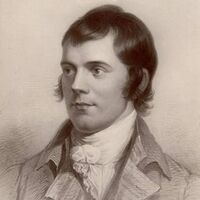
Robert Burns (25 January 1759 – 21 July 1796) (also known as Rabbie Burns, Scotland's favourite son, the Ploughman Poet, Robden of Solway Firth, the Bard of Ayrshire and in Scotland as simply The Bard) was a Scottish poet and a lyricist. He is widely regarded as the national poet of Scotland, and is celebrated worldwide. He is the best known of the poets who have written in the Scots language, although much of his writing is also in English and a “light” Scots dialect, accessible to an audience beyond Scotland. He also wrote in standard English, and in these his political or civil commentary is often at its most blunt.
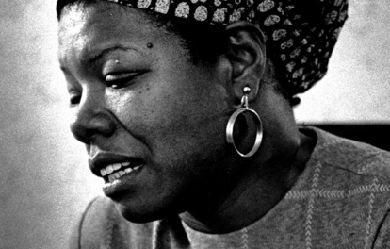
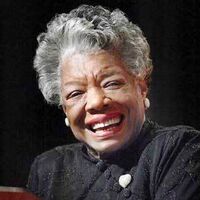
Maya Angelou (born Marguerite Ann Johnson; April 4, 1928 – May 28, 2014) was an American author and poet. She published seven autobiographies, three books of essays, and several books of poetry, and is credited with a list of plays, movies, and television shows spanning more than fifty years. She received dozens of awards and over thirty honorary doctoral degrees. Angelou is best known for her series of seven autobiographies, which focus on her childhood and early adult experiences. The first, I Know Why the Caged Bird Sings (1969), tells of her life up to the age of seventeen, and brought her international recognition and acclaim. Angelou's long list of occupations has included pimp, prostitute, night-club dancer and performer, cast-member of the musical Porgy and Bess, coordinator for Martin Luther King, Jr.'s Southern Christian Leadership Conference, author, journalist in Egypt and Ghana during the days of decolonization, and actor, writer, director, and producer of plays, movies, and public television programs.

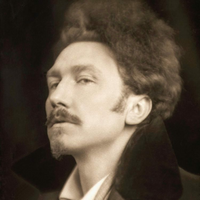
Ezra Weston Loomis Pound (30 October 1885 – 1 November 1972) was an American expatriate poet, critic and a major figure of the early modernist movement. His contribution to poetry began with his promotion of Imagism, a movement that derived its technique from classical Chinese and Japanese poetry, stressing clarity, precision and economy of language. His best-known works include Ripostes (1912), Hugh Selwyn Mauberley (1920), and his unfinished 120-section epic, The Cantos (1917–1969). Working in London in the early 20th century as foreign editor of several American literary magazines, Pound helped to discover and shape the work of contemporaries such as T. S. Eliot, James Joyce, Robert Frost, and Ernest Hemingway. He was responsible for the publication in 1915 of Eliot's “The Love Song of J. Alfred Prufrock,” and for the serialization from 1918 of Joyce's Ulysses. Hemingway wrote of him in 1925: “He defends [his friends] when they are attacked, he gets them into magazines and out of jail. ... He writes articles about them. He introduces them to wealthy women. He gets publishers to take their books. He sits up all night with them when they claim to be dying... he advances them hospital expenses and dissuades them from suicide.”
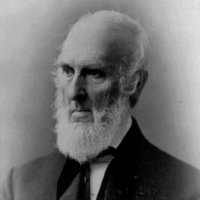
John Greenleaf Whittier (December 17, 1807 – September 7, 1892) was an American Quaker poet and advocate of the abolition of slavery in the United States. Frequently listed as one of the Fireside Poets, he was influenced by the Scottish poet Robert Burns. Whittier is remembered particularly for his anti-slavery writings as well as his book Snow-Bound.

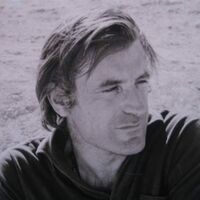
Edward James (Ted) Hughes was born in Mytholmroyd, in the West Riding district of Yorkshire, on August 17, 1930. His childhood was quiet and dominately rural. When he was seven years old, his family moved to the small town of Mexborough in South Yorkshire, and the landscape of the moors of that area informed his poetry throughout his life. Hughes graduated from Cambridge in 1954. A few years later, in 1956, he co-founded the literary magazine St. Botolph’s Review with a handful of other editors. At the launch party for the magazine, he met Sylvia Plath. A few short months later, on June 16, 1956, they were married.
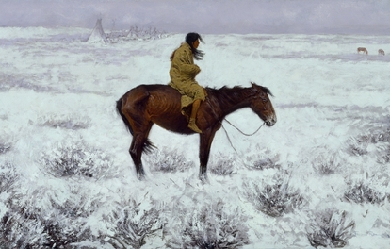
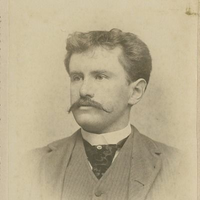
William Sydney Porter (September 11, 1862– June 5, 1910), known by his pen name O. Henry, was an American short story writer. His stories are known for their surprise endings. Biography Early life William Sidney Porter was born on September 11, 1862, in Greensboro, North Carolina. He changed the spelling of his middle name to Sydney in 1898. His parents were Dr. Algernon Sidney Porter (1825–88), a physician, and Mary Jane Virginia Swaim Porter (1833–65). William’s parents had married on April 20, 1858. When William was three, his mother died from tuberculosis, and he and his father moved into the home of his paternal grandmother. As a child, Porter was always reading, everything from classics to dime novels; his favorite works were Lane’s translation of One Thousand and One Nights and Burton’s Anatomy of Melancholy. Porter graduated from his aunt Evelina Maria Porter’s elementary school in 1876. He then enrolled at the Lindsey Street High School. His aunt continued to tutor him until he was fifteen. In 1879, he started working in his uncle’s drugstore in Greensboro, and on August 30, 1881, at the age of nineteen, Porter was licensed as a pharmacist. At the drugstore, he also showed off his natural artistic talents by sketching the townsfolk. Move to Texas Porter traveled with Dr. James K. Hall to Texas in March 1882, hoping that a change of air would help alleviate a persistent cough he had developed. He took up residence on the sheep ranch of Richard Hall, James’ son, in La Salle County and helped out as a shepherd, ranch hand, cook, and baby-sitter. While on the ranch, he learned bits of Spanish and German from the mix of immigrant ranch hands. He also spent time reading classic literature. Porter’s health did improve. He traveled with Richard to Austin in 1884, where he decided to remain and was welcomed into the home of Richard’s friends, Joseph Harrell and his wife. Porter resided with the Harrells for three years. He went to work briefly for the Morley Brothers Drug Company as a pharmacist. Porter then moved on to work for the Harrell Cigar Store located in the Driskill Hotel. He also began writing as a sideline and wrote many of his early stories in the Harrell house. As a young bachelor, Porter led an active social life in Austin. He was known for his wit, story-telling and musical talents. He played both the guitar and mandolin. He sang in the choir at St. David’s Episcopal Church and became a member of the “Hill City Quartette”, a group of young men who sang at gatherings and serenaded young women of the town. Porter met and began courting Athol Estes, then seventeen years old and from a wealthy family. Historians believe Porter met Athol at the laying of the cornerstone of the Texas State Capitol on March 2, 1885. Her mother objected to the match because Athol was ill, suffering from tuberculosis. On July 1, 1887, Porter eloped with Athol and were married in the parlor of the home of Reverend R. K. Smoot, pastor of the Central Presbyterian Church, where the Estes family attended church. The couple continued to participate in musical and theater groups, and Athol encouraged her husband to pursue his writing. Athol gave birth to a son in 1888, who died hours after birth, and then a daughter, Margaret Worth Porter, in September 1889. Porter’s friend Richard Hall became Texas Land Commissioner and offered Porter a job. Porter started as a draftsman at the Texas General Land Office (GLO) on January 12, 1887 at a salary of $100 a month, drawing maps from surveys and fieldnotes. The salary was enough to support his family, but he continued his contributions to magazines and newspapers. In the GLO building, he began developing characters and plots for such stories as “Georgia’s Ruling” (1900), and “Buried Treasure” (1908). The castle-like building he worked in was even woven into some of his tales such as "Bexar Scrip No. 2692" (1894). His job at the GLO was a political appointment by Hall. Hall ran for governor in the election of 1890 but lost. Porter resigned on January 21, 1891, the day after the new governor, Jim Hogg, was sworn in. The same year, Porter began working at the First National Bank of Austin as a teller and bookkeeper at the same salary he had made at the GLO. The bank was operated informally, and Porter was apparently careless in keeping his books and may have embezzled funds. In 1894, he was accused by the bank of embezzlement and lost his job but was not indicted at the time. He then worked full-time on his humorous weekly called The Rolling Stone, which he started while working at the bank. The Rolling Stone featured satire on life, people and politics and included Porter’s short stories and sketches. Although eventually reaching a top circulation of 1500, The Rolling Stone failed in April 1895, since the paper never provided an adequate income. However, his writing and drawings had caught the attention of the editor at the Houston Post. Porter and his family moved to Houston in 1895, where he started writing for the Post. His salary was only $25 a month, but it rose steadily as his popularity increased. Porter gathered ideas for his column by loitering in hotel lobbies and observing and talking to people there. This was a technique he used throughout his writing career. While he was in Houston, federal auditors audited the First National Bank of Austin and found the embezzlement shortages that led to his firing. A federal indictment followed, and he was arrested on charges of embezzlement. Flight and return Porter’s father-in-law posted bail to keep him out of jail. He was due to stand trial on July 7, 1896, but the day before, as he was changing trains to get to the courthouse, an impulse hit him. He fled, first to New Orleans and later to Honduras, with which the United States had no extradition treaty at that time. William lived in Honduras for only six months, until January 1897. There he became friends with Al Jennings, a notorious train robber, who later wrote a book about their friendship. He holed up in a Trujillo hotel, where he wrote Cabbages and Kings, in which he coined the term “banana republic” to qualify the country, a phrase subsequently used widely to describe a small, unstable tropical nation in Latin America with a narrowly focused, agrarian economy. Porter had sent Athol and Margaret back to Austin to live with Athol’s parents. Unfortunately, Athol became too ill to meet Porter in Honduras as he had planned. When he learned that his wife was dying, Porter returned to Austin in February 1897 and surrendered to the court, pending trial. Athol Estes Porter died from tuberculosis (then known as consumption) on July 25, 1897. Porter had little to say in his own defense at his trial and was found guilty on February 17, 1898 of embezzling $854.08. He was sentenced to five years in prison and imprisoned on March 25, 1898, at the Ohio Penitentiary in Columbus, Ohio. Porter was a licensed pharmacist and was able to work in the prison hospital as the night druggist. He was given his own room in the hospital wing, and there is no record that he actually spent time in the cell block of the prison. He had fourteen stories published under various pseudonyms while he was in prison but was becoming best known as “O. Henry”, a pseudonym that first appeared over the story “Whistling Dick’s Christmas Stocking” in the December 1899 issue of McClure’s Magazine. A friend of his in New Orleans would forward his stories to publishers so that they had no idea that the writer was imprisoned. Porter was released on July 24, 1901, for good behavior after serving three years. He reunited with his daughter Margaret, now age 11, in Pittsburgh, Pennsylvania, where Athol’s parents had moved after Porter’s conviction. Margaret was never told that her father had been in prison—just that he had been away on business. Later life and death Porter’s most prolific writing period started in 1902, when he moved to New York City to be near his publishers. While there, he wrote 381 short stories. He wrote a story a week for over a year for the New York World Sunday Magazine. His wit, characterization, and plot twists were adored by his readers but often panned by critics. Porter married again in 1907 to childhood sweetheart Sarah (Sallie) Lindsey Coleman, whom he met again after revisiting his native state of North Carolina. Sarah Lindsey Coleman was herself a writer and wrote a romanticized and fictionalized version of their correspondence and courtship in her novella Wind of Destiny. Porter was a heavy drinker, and by 1908, his markedly deteriorating health affected his writing. In 1909, Sarah left him, and he died on June 5, 1910, of cirrhosis of the liver, complications of diabetes, and an enlarged heart. After funeral services in New York City, he was buried in the Riverside Cemetery in Asheville, North Carolina. His daughter, Margaret Worth Porter, had a short writing career from 1913 to 1916. She married cartoonist Oscar Cesare of New York in 1916; they were divorced four years later. She died of tuberculosis in 1927 and is buried next to her father. Stories O. Henry’s stories frequently have surprise endings. In his day he was called the American answer to Guy de Maupassant. While both authors wrote plot twist endings, O. Henry’s stories were considerably more playful. His stories are also known for witty narration. Most of O. Henry’s stories are set in his own time, the early 20th century. Many take place in New York City and deal for the most part with ordinary people: policemen, waitresses, etc. O. Henry’s work is wide-ranging, and his characters can be found roaming the cattle-lands of Texas, exploring the art of the con-man, or investigating the tensions of class and wealth in turn-of-the-century New York. O. Henry had an inimitable hand for isolating some element of society and describing it with an incredible economy and grace of language. Some of his best and least-known work is contained in Cabbages and Kings, a series of stories each of which explores some individual aspect of life in a paralytically sleepy Central American town, while advancing some aspect of the larger plot and relating back one to another. Cabbages and Kings was his first collection of stories, followed by The Four Million. The second collection opens with a reference to Ward McAllister’s “assertion that there were only 'Four Hundred’ people in New York City who were really worth noticing. But a wiser man has arisen—the census taker—and his larger estimate of human interest has been preferred in marking out the field of these little stories of the ‘Four Million.’” To O. Henry, everyone in New York counted. He had an obvious affection for the city, which he called “Bagdad-on-the-Subway”, and many of his stories are set there—while others are set in small towns or in other cities. His final work was “Dream”, a short story intended for the magazine The Cosmopolitan but left incomplete at the time of his death. Among his most famous stories are: “The Gift of the Magi” about a young couple, Jim and Della, who are short of money but desperately want to buy each other Christmas gifts. Unbeknownst to Jim, Della sells her most valuable possession, her beautiful hair, in order to buy a platinum fob chain for Jim’s watch; while unbeknownst to Della, Jim sells his own most valuable possession, his watch, to buy jeweled combs for Della’s hair. The essential premise of this story has been copied, re-worked, parodied, and otherwise re-told countless times in the century since it was written. “The Ransom of Red Chief”, in which two men kidnap a boy of ten. The boy turns out to be so bratty and obnoxious that the desperate men ultimately pay the boy’s father $250 to take him back. “The Cop and the Anthem” about a New York City hobo named Soapy, who sets out to get arrested so that he can be a guest of the city jail instead of sleeping out in the cold winter. Despite efforts at petty theft, vandalism, disorderly conduct, and “mashing” with a young prostitute, Soapy fails to draw the attention of the police. Disconsolate, he pauses in front of a church, where an organ anthem inspires him to clean up his life—and is ironically charged for loitering and sentenced to three months in prison. “A Retrieved Reformation”, which tells the tale of safecracker Jimmy Valentine, recently freed from prison. He goes to a town bank to case it before he robs it. As he walks to the door, he catches the eye of the banker’s beautiful daughter. They immediately fall in love and Valentine decides to give up his criminal career. He moves into the town, taking up the identity of Ralph Spencer, a shoemaker. Just as he is about to leave to deliver his specialized tools to an old associate, a lawman who recognizes him arrives at the bank. Jimmy and his fiancée and her family are at the bank, inspecting a new safe when a child accidentally gets locked inside the airtight vault. Knowing it will seal his fate, Valentine opens the safe to rescue the child. However, much to Valentine’s surprise, the lawman denies recognizing him and lets him go. “The Duplicity of Hargraves”. A short story about a nearly destitute father and daughter’s trip to Washington, D.C. “The Caballero’s Way”, in which Porter’s most famous character, the Cisco Kid, is introduced. It was first published in 1907 in the July issue of Everybody’s Magazine and collected in the book Heart of the West that same year. In later film and TV depictions, the Kid would be portrayed as a dashing adventurer, perhaps skirting the edges of the law, but primarily on the side of the angels. In the original short story, the only story by Porter to feature the character, the Kid is a murderous, ruthless border desperado, whose trail is dogged by a heroic Texas Ranger. The twist ending is, unusually for Porter, tragic. Pen name Porter used a number of pen names (including “O. Henry” or “Olivier Henry”) in the early part of his writing career; other names included S.H. Peters, James L. Bliss, T.B. Dowd, and Howard Clark. Nevertheless, the name “O. Henry” seemed to garner the most attention from editors and the public, and was used exclusively by Porter for his writing by about 1902. He gave various explanations for the origin of his pen name. In 1909 he gave an interview to The New York Times, in which he gave an account of it: It was during these New Orleans days that I adopted my pen name of O. Henry. I said to a friend: “I’m going to send out some stuff. I don’t know if it amounts to much, so I want to get a literary alias. Help me pick out a good one.” He suggested that we get a newspaper and pick a name from the first list of notables that we found in it. In the society columns we found the account of a fashionable ball. “Here we have our notables,” said he. We looked down the list and my eye lighted on the name Henry, “That’ll do for a last name,” said I. “Now for a first name. I want something short. None of your three-syllable names for me.” “Why don’t you use a plain initial letter, then?” asked my friend. “Good,” said I, “O is about the easiest letter written, and O it is.” A newspaper once wrote and asked me what the O stands for. I replied, “O stands for Olivier, the French for Oliver.” And several of my stories accordingly appeared in that paper under the name Olivier Henry. William Trevor writes in the introduction to The World of O. Henry: Roads of Destiny and Other Stories (Hodder & Stoughton, 1973) that “there was a prison guard named Orrin Henry” in the Ohio State Penitentiary “whom William Sydney Porter... immortalised as O. Henry”. According to J. F. Clarke, it is from the name of the French pharmacist Etienne Ossian Henry, whose name is in the U. S. Dispensary which Porter used working in the prison pharmacy. Writer and scholar Guy Davenport offers his own hypothesis: “The pseudonym that he began to write under in prison is constructed from the first two letters of Ohio and the second and last two of penitentiary.” Legacy The O. Henry Award is a prestigious annual prize named after Porter and given to outstanding short stories. A film was made in 1952 featuring five stories, called O. Henry’s Full House. The episode garnering the most critical acclaim was “The Cop and the Anthem” starring Charles Laughton and Marilyn Monroe. The other stories are “The Clarion Call”, “The Last Leaf”, “The Ransom of Red Chief” (starring Fred Allen and Oscar Levant), and “The Gift of the Magi”. The O. Henry House and O. Henry Hall, both in Austin, Texas, are named for him. O. Henry Hall, now owned by the Texas State University System, previously served as the federal courthouse in which O. Henry was convicted of embezzlement. Porter has elementary schools named for him in Greensboro, North Carolina (William Sydney Porter Elementary) and Garland, Texas (O. Henry Elementary), as well as a middle school in Austin, Texas (O. Henry Middle School). The O. Henry Hotel in Greensboro is also named for Porter, as is US 29 which is O. Henry Boulevard. In 1962, the Soviet Postal Service issued a stamp commemorating O. Henry’s 100th birthday. On September 11, 2012, the U.S. Postal Service issued a stamp commemorating the 150th anniversary of O. Henry’s birth. On November 23, 2011, Barack Obama quoted O. Henry while granting pardons to two turkeys named “Liberty” and “Peace”. In response, political science professor P. S. Ruckman, Jr., and Texas attorney Scott Henson filed a formal application for a posthumous pardon in September 2012, the same month that the U.S. Postal Service issued its O. Henry stamp. Previous attempts were made to obtain such a pardon for Porter in the administrations of Woodrow Wilson, Dwight Eisenhower, and Ronald Reagan, but no one had ever bothered to file a formal application. Ruckman and Henson argued that Porter deserved a pardon because (1) he was a law-abiding citizen prior to his conviction; (2) his offense was minor; (3) he had an exemplary prison record; (4) his post-prison life clearly indicated rehabilitation; (5) he would have been an excellent candidate for clemency in his time, had he but applied for pardon; (6) by today’s standards, he remains an excellent candidate for clemency; and (7) his pardon would be a well-deserved symbolic gesture and more. O. Henry’s love of language inspired the O. Henry Pun-Off, an annual spoken word competition began in 1978 that takes place at the O. Henry House. Bibliography * Cabbages and Kings (1904) * The Four Million (1906), short stories * The Trimmed Lamp (1907), short stories: “The Trimmed Lamp”, “A Madison Square Arabian Night”, “The Rubaiyat of a Scotch Highball”, “The Pendulum”, “Two Thanksgiving Day Gentlemen”, “The Assessor of Success”, “The Buyer from Cactus City”, “The Badge of Policeman O’Roon”, “Brickdust Row”, “The Making of a New Yorker”, “Vanity and Some Sables”, “The Social Triangle”, “The Purple Dress”, "The Foreign Policy of Company 99", “The Lost Blend”, “A Harlem Tragedy”, “'The Guilty Party’”, “According to Their Lights”, “A Midsummer Knight’s Dream”, “The Last Leaf”, “The Count and the Wedding Guest”, “The Country of Elusion”, “The Ferry of Unfulfilment”, “The Tale of a Tainted Tenner”, “Elsie in New York” * Heart of the West (1907), short stories: “Hearts and Crosses”, “The Ransom of Mack”, “Telemachus, Friend”, “The Handbook of Hymen”, “The Pimienta Pancakes”, “Seats of the Haughty”, “Hygeia at the Solito”, “An Afternoon Miracle”, “The Higher Abdication”, "Cupid à la Carte", “The Caballero’s Way”, “The Sphinx Apple”, “The Missing Chord”, “A Call Loan”, “The Princess and the Puma”, “The Indian Summer of Dry Valley Johnson”, “Christmas by Injunction”, “A Chaparral Prince”, “The Reformation of Calliope” * The Voice of the City (1908), short stories: “The Voice of the City”, “The Complete Life of John Hopkins”, “A Lickpenny Lover”, “Dougherty’s Eye-opener”, “'Little Speck in Garnered Fruit’”, “The Harbinger”, “While the Auto Waits”, “A Comedy in Rubber”, “One Thousand Dollars”, “The Defeat of the City”, “The Shocks of Doom”, “The Plutonian Fire”, “Nemesis and the Candy Man”, “Squaring the Circle”, “Roses, Ruses and Romance”, “The City of Dreadful Night”, “The Easter of the Soul”, “The Fool-killer”, “Transients in Arcadia”, “The Rathskeller and the Rose”, “The Clarion Call”, “Extradited from Bohemia”, “A Philistine in Bohemia”, “From Each According to His Ability”, “The Memento” * The Gentle Grafter (1908), short stories: “The Octopus Marooned”, “Jeff Peters as a Personal Magnet”, “Modern Rural Sports”, “The Chair of Philanthromathematics”, “The Hand That Riles the World”, “The Exact Science of Matrimony”, “A Midsummer Masquerade”, “Shearing the Wolf”, “Innocents of Broadway”, “Conscience in Art”, “The Man Higher Up”, “Tempered Wind”, “Hostages to Momus”, “The Ethics of Pig” * Roads of Destiny (1909), short stories: “Roads of Destiny”, “The Guardian of the Accolade”, “The Discounters of Money”, “The Enchanted Profile”, “Next to Reading Matter”, “Art and the Bronco”, "Phœbe", “A Double-dyed Deceiver”, “The Passing of Black Eagle”, “A Retrieved Reformation”, “Cherchez la Femme”, “Friends in San Rosario”, “The Fourth in Salvador”, “The Emancipation of Billy”, “The Enchanted Kiss”, “A Departmental Case”, “The Renaissance at Charleroi”, “On Behalf of the Management”, “Whistling Dick’s Christmas Stocking”, “The Halberdier of the Little Rheinschloss”, “Two Renegades”, “The Lonesome Road” * Options (1909), short stories: “'The Rose of Dixie’”, “The Third Ingredient”, “The Hiding of Black Bill”, “Schools and Schools”, “Thimble, Thimble”, “Supply and Demand”, “Buried Treasure”, “To Him Who Waits”, “He Also Serves”, “The Moment of Victory”, “The Head-hunter”, “No Story”, “The Higher Pragmatism”, “Best-seller”, “Rus in Urbe”, “A Poor Rule” * Strictly Business (1910), short stories: “Strictly Business”, “The Gold That Glittered”, “Babes in the Jungle”, “The Day Resurgent”, “The Fifth Wheel”, “The Poet and the Peasant”, “The Robe of Peace”, “The Girl and the Graft”, “The Call of the Tame”, “The Unknown Quantity”, “The Thing’s the Play”, “A Ramble in Aphasia”, “A Municipal Report”, “Psyche and the Pskyscraper”, “A Bird of Bagdad”, “Compliments of the Season”, “A Night in New Arabia”, “The Girl and the Habit”, “Proof of the Pudding”, “Past One at Rooney’s”, “The Venturers”, “The Duel”, “'What You Want’” * Whirligigs (1910), short stories: “The World and the Door”, “The Theory and the Hound”, “The Hypotheses of Failure”, “Calloway’s Code”, “A Matter of Mean Elevation”, “Girl”, “Sociology in Serge and Straw”, “The Ransom of Red Chief”, “The Marry Month of May”, “A Technical Error”, “Suite Homes and Their Romance”, “The Whirligig of Life”, “A Sacrifice Hit”, “The Roads We Take”, “A Blackjack Bargainer, ”The Song and the Sergeant", “One Dollar’s Worth”, “A Newspaper Story”, “Tommy’s Burglar”, “A Chaparral Christmas Gift”, “A Little Local Colour”, “Georgia’s Ruling”, “Blind Man’s Holiday”, “Madame Bo-Peep of the Ranches” * Sixes and Sevens (1911), short stories: “The Last of the Troubadours”, “The Sleuths”, “Witches’ Loaves”, “The Pride of the Cities”, “Holding Up a Train”, “Ulysses and the Dogman”, “The Champion of the Weather”, “Makes the Whole World Kin”, “At Arms with Morpheus”, “A Ghost of a Chance”, “Jimmy Hayes and Muriel”, “The Door of Unrest”, “The Duplicity of Hargraves”, “Let Me Feel Your Pulse”, “October and June”, “The Church with an Overshot-Wheel”, “New York by Camp Fire Light”, “The Adventures of Shamrock Jolnes”, “The Lady Higher Up”, “The Greater Coney”, “Law and Order”, “Transformation of Martin Burney”, “The Caliph and the Cad”, “The Diamond of Kali”, “The Day We Celebrate” * Rolling Stones (1912), short stories: “The Dream”, “A Ruler of Men”, “The Atavism of John Tom Little Bear”, “Helping the Other Fellow”, “The Marionettes”, “The Marquis and Miss Sally”, “A Fog in Santone”, “The Friendly Call”, “A Dinner at———”, “Sound and Fury”, “Tictocq”, “Tracked to Doom”, “A Snapshot at the President”, “An Unfinished Christmas Story”, “The Unprofitable Servant”, “Aristocracy Versus Hash”, “The Prisoner of Zembla”, “A Strange Story”, “Fickle Fortune, or How Gladys Hustled”, “An Apology”, “Lord Oakhurst’s Curse”, "Bexar Scrip No. 2692” * Waifs and Strays (1917), short stories References Wikipedia—https://en.wikipedia.org/wiki/O._Henry

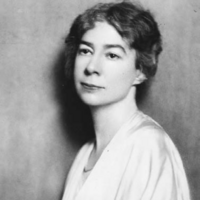
Sara Teasdale (August 8, 1884 – January 29, 1933) was an American lyric poet. She was born Sarah Trevor Teasdale in St. Louis, Missouri, and used the name Sara Teasdale Filsinger after her marriage in 1914. She had such poor health for so much of her childhood, home schooled until age 9, that it was only at age 10 that she was well enough to begin school. She started at Mary Institute in 1898, but switched to Hosmer Hall in 1899, graduating in 1903. I Shall Not Care WHEN I am dead and over me bright April Shakes out her rain-drenched hair, Tho' you should lean above me broken-hearted, I shall not care. I shall have peace, as leafy trees are peaceful When rain bends down the bough, And I shall be more silent and cold-hearted Than you are now.
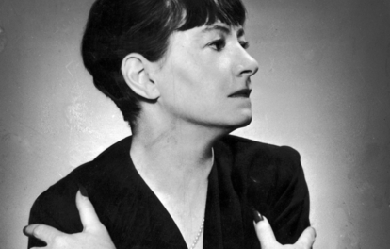

Dorothy Parker (August 22, 1893 – June 7, 1967) was an American poet, short story writer, critic and satirist, best known for her wit, wisecracks, and eye for 20th-century urban foibles. From a conflicted and unhappy childhood, Parker rose to acclaim, both for her literary output in such venues as The New Yorker and as a founding member of the Algonquin Round Table. Following the breakup of the circle, Parker traveled to Hollywood to pursue screenwriting. Her successes there, including two Academy Award nominations, were curtailed as her involvement in left-wing politics led to a place on the Hollywood blacklist. Dismissive of her own talents, she deplored her reputation as a “wisecracker”. Nevertheless, her literary output and reputation for her sharp wit have endured.
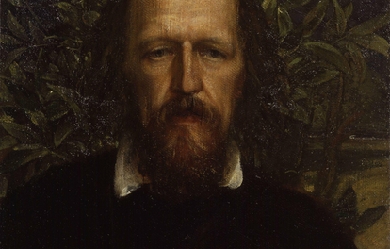
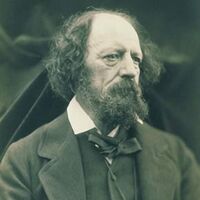
Alfred Tennyson, 1st Baron Tennyson, FRS (6 August 1809 – 6 October 1892) was Poet Laureate of the United Kingdom during much of Queen Victoria's reign and remains one of the most popular poets in the English language. A number of phrases from Tennyson’s work have become commonplaces of the English language, including “Nature, red in tooth and claw”, “'Tis better to have loved and lost / Than never to have loved at all”, “Theirs not to reason why, / Theirs but to do and die”, “My strength is as the strength of ten, / Because my heart is pure”, “Knowledge comes, but Wisdom lingers”, and “The old order changeth, yielding place to new”. He is the ninth most frequently quoted writer in The Oxford Dictionary of Quotations.
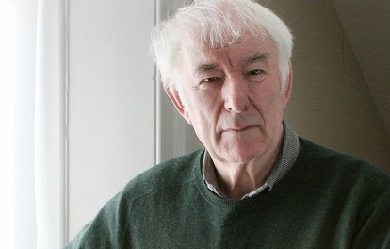
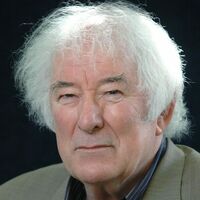
Seamus Justin Heaney (13 April 1939 – 30 August 2013) was an Irish poet, playwright and translator. He received the 1995 Nobel Prize in Literature. Among his best-known works is Death of a Naturalist (1966), his first major published volume. Heaney was and is still recognised as one of the principal contributors to poetry in Ireland during his lifetime. American poet Robert Lowell described him as “the most important Irish poet since Yeats”, and many others, including the academic John Sutherland, have said that he was “the greatest poet of our age”. Robert Pinsky has stated that “with his wonderful gift of eye and ear Heaney has the gift of the story-teller.” Upon his death in 2013, The Independent described him as “probably the best-known poet in the world”.
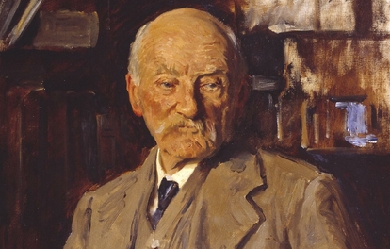
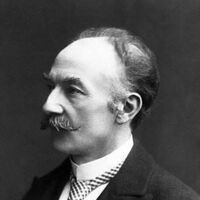
Thomas Hardy (2 June 1840 – 11 January 1928) was an English novelist and poet. While his works typically belong to the Naturalism movement, several poems display elements of the previous Romantic and Enlightenment periods of literature, such as his fascination with the supernatural. While he regarded himself primarily as a poet who composed novels mainly for financial gain, he became and continues to be widely regarded for his novels, such as Tess of the d'Urbervilles and Far from the Madding Crowd. Hardy's poetry, first published in his fifties, has come to be as well regarded as his novels and has had a significant influence over modern English poetry, especially after The Movement poets of the 1950s and 1960s cited Hardy as a major figure.
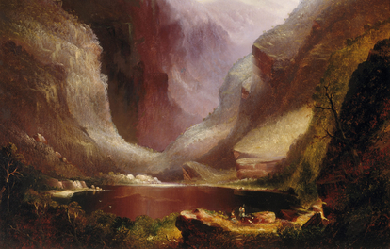
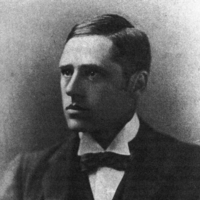
Andrew Barton “Banjo” Paterson, CBE (17 February 1864– 5 February 1941) was an Australian bush poet, journalist and author. He wrote many ballads and poems about Australian life, focusing particularly on the rural and outback areas, including the district around Binalong, New South Wales, where he spent much of his childhood. Paterson’s more notable poems include “Waltzing Matilda”, “The Man from Snowy River” and “Clancy of the Overflow”.
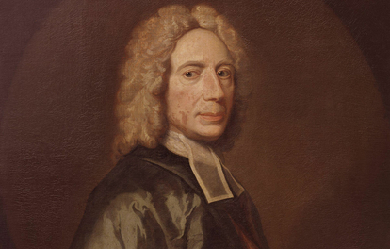
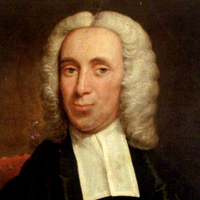
Isaac Watts (17 July 1674– 25 November 1748) was an English Christian minister, hymnwriter, theologian and logician. A prolific and popular hymn writer, his work was part of evangelization. He was recognized as the “Father of English Hymnody”, credited with some 750 hymns. Many of his hymns remain in use today and have been translated into numerous languages.
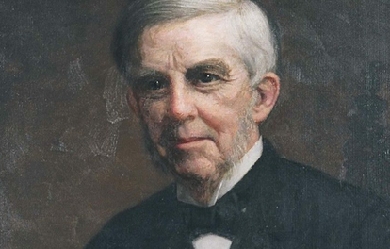
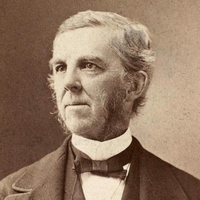
Oliver Wendell Holmes (August 29, 1809 – October 7, 1894) was an American physician, poet, and polymath based in Boston. Grouped among the fireside poets, he was acclaimed by his peers as one of the best writers of the day. His most famous prose works are the "Breakfast-Table" series, which began with The Autocrat of the Breakfast-Table (1858). He was also an important medical reformer. In addition to his work as an author and poet, Holmes also served as a physician, professor, lecturer, inventor, and, although he never practiced it, he received formal training in law.
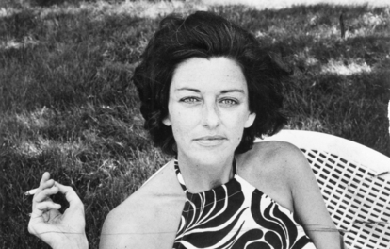
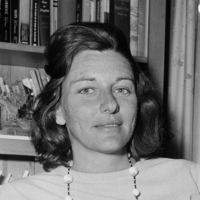
Anne Sexton (November 9, 1928, Newton, Massachusetts – October 4, 1974, Weston, Massachusetts) was an American poetese, known for her highly personal, confessional verse. She won the Pulitzer Prize for poetry in 1967. Themes of her poetry include her suicidal tendencies, long battle against depression and various intimate details from her private life, including her relationships with her husband and children. Sexton suffered from severe mental illness for much of her life, her first manic episode taking place in 1954.
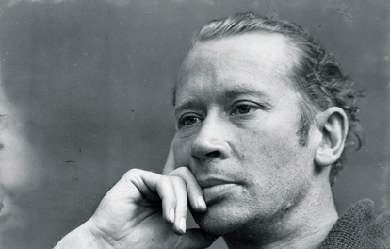
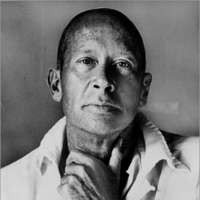
Edward Estlin Cummings (October 14, 1894 – September 3, 1962), popularly known as E. E. Cummings, with the abbreviated form of his name often written by others in lowercase letters as e.e. cummings (in the style of some of his poems—see name and capitalization, below), was an American poet, painter, essayist, author, and playwright. His body of work encompasses approximately 2,900 poems, two autobiographical novels, four plays and several essays, as well as numerous drawings and paintings. He is remembered as a preeminent voice of 20th century poetry.
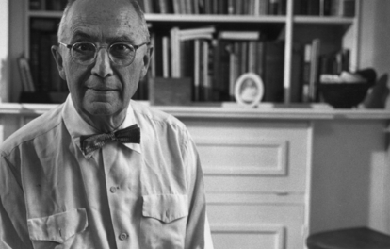
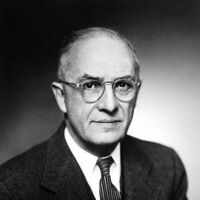
William Carlos Williams (September 17, 1883 – March 4, 1963) was an American poet closely associated with modernism and Imagism. He was also a pediatrician and general practitioner of medicine with a medical degree from the University of Pennsylvania School of Medicine. Williams "worked harder at being a writer than he did at being a physician" but excelled at both. Although his primary occupation was as a family doctor, Williams had a successful literary career as a poet. In addition to poetry (his main literary focus), he occasionally wrote short stories, plays, novels, essays, and translations. He practiced medicine by day and wrote at night. Early in his career, he briefly became involved in the Imagist movement through his friendships with Ezra Pound and H.D. (also known as Hilda Doolittle, another well-known poet whom he befriended while attending the University of Pennsylvania), but soon he began to develop opinions that differed from those of his poet/friends.
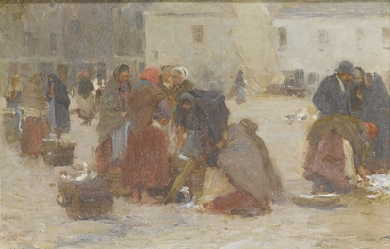
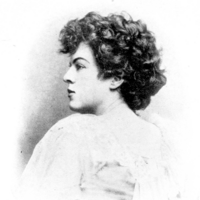
Dora Maria Sigerson Shorter (16 August 1866– 6 January 1918) was an Irish poet and sculptor, who after her marriage in 1895 wrote under the name Dora Sigerson Shorter. She was born in Dublin, Ireland, the daughter of George Sigerson, a surgeon and writer, and Hester (née Varian), also a writer. She was a major figure of the Irish Literary Revival, publishing many collections of poetry from 1893. Her friends included Katharine Tynan, Rose Kavanagh and Alice Furlong, writers and poets. In 1895 she married Clement King Shorter, an English journalist and literary critic. They lived together in London, until her death at age 51 from undisclosed causes.
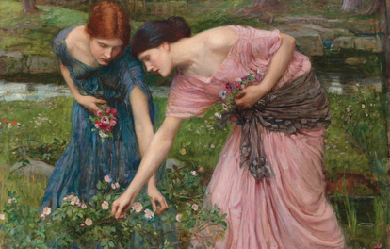
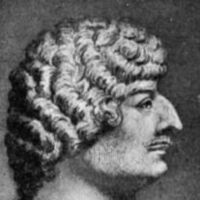
Robert Herrick (baptized 24 August 1591 – buried 15 October 1674) was a 17th-century English poet. Born in Cheapside, London, he was the seventh child and fourth son of Julia Stone and Nicholas Herrick, a prosperous goldsmith. His father died in a fall from a fourth-floor window in November 1592, when Robert was a year old (whether this was suicide remains unclear). The tradition that Herrick received his education at Westminster is groundless. It is more likely that (like his uncle's children) he attended The Merchant Taylors' School. In 1607 he became apprenticed to his uncle, Sir William Herrick, who was a goldsmith and jeweler to the king. The apprenticeship ended after only six years when Herrick, at age twenty-two, matriculated at St John's College, Cambridge. He graduated in 1617. Robert Herrick became a member of the Sons of Ben, a group centered upon an admiration for the works of Ben Jonson. Herrick wrote at least five poems to Jonson. Herrick took holy orders in 1623, and in 1629 he became vicar of Dean Prior in Devonshire. In 1647, in the wake of the English Civil War, Herrick was ejected from his vicarage for refusing the Solemn League and Covenant. He then returned to London, living in Westminster and depending on the charity of his friends and family. He spent some time preparing his lyric poems for publication, and had them printed in 1648 under the title Hesperides; or the Works both Human and Divine of Robert Herrick, with a dedication to the Prince of Wales. When King Charles II was restored to the throne in 1660, Herrick petitioned for his own restoration to his living. Perhaps King Charles felt kindly towards this genial man, who had written verses celebrating the births of both Charles II and his brother James before the Civil War. Herrick became the vicar of Dean Prior again in the summer of 1662 and lived there until his death in October 1674, at the ripe age of 83. His date of death is not known, but he was buried on 15 October. Herrick was a bachelor all his life, and many of the women he names in his poems are thought to be fictional. Poetic style and stature Herrick wrote over 2,500 poems, about half of which appear in his major work, Hesperides. Hesperides also includes the much shorter Noble Numbers, his first book, of spiritual works, first published in 1647. He is well-known for his style and, in his earlier works, frequent references to lovemaking and the female body. His later poetry was more of a spiritual and philosophical nature. Among his most famous short poetical sayings are the unique monometers, such as "Thus I / Pass by / And die,/ As one / Unknown / And gone." Herrick sets out his subject-matter in the poem he printed at the beginning of his collection, The Argument of his Book. He dealt with English country life and its seasons, village customs, complimentary poems to various ladies and his friends, themes taken from classical writings and a solid bedrock of Christian faith, not intellectualized but underpinning the rest. Herrick never married, and none of his love-poems seem to connect directly with any one beloved woman. He loved the richness of sensuality and the variety of life, and this is shown vividly in such poems as Cherry-ripe, Delight in Disorder and Upon Julia’s Clothes. The over-riding message of Herrick’s work is that life is short, the world is beautiful, love is splendid, and we must use the short time we have to make the most of it. This message can be seen clearly in To the Virgins, to make much of Time, To Daffodils, To Blossoms and Corinna going a-Maying, where the warmth and exuberance of what seems to have been a kindly and jovial personality comes over strongly. The opening stanza in one of his more famous poems, "To the Virgins, to Make Much of Time", is as follows: Gather ye rosebuds while ye may, Old Time is still a-flying; And this same flower that smiles today, Tomorrow will be dying. This poem is an example of the carpe diem genre; the popularity of Herrick's poems of this kind helped revive the genre. His poems were not widely popular at the time they were published. His style was strongly influenced by Ben Jonson, by the classical Roman writers, and by the poems of the late Elizabethan era. This must have seemed quite old-fashioned to an audience whose tastes were tuned to the complexities of the metaphysical poets such as John Donne and Andrew Marvell. His works were rediscovered in the early nineteenth century, and have been regularly printed ever since. The Victorian poet Swinburne described Herrick as the greatest song writer...ever born of English race. It is certainly true that despite his use of classical allusions and names, his poems are easier for modern readers to understand than those of many of his contemporaries. Robert Herrick is a major character in Rose Macaulay's 1932 historical novel, They Were Defeated. References Wikipedia - http://en.wikipedia.org/wiki/Robert_Herrick_(poet)
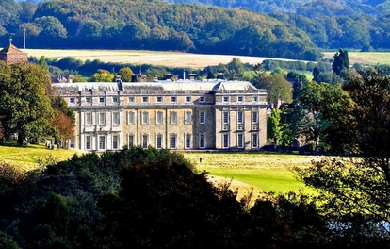
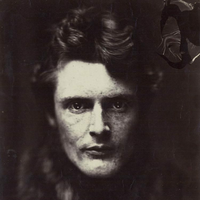
Wilfrid Scawen Blunt (17 August 1840– 10 September 1922) (sometimes spelled “Wilfred”) was an English poet and writer. He and his wife, Lady Anne Blunt travelled in the Middle East and were instrumental in preserving the Arabian horse bloodlines through their farm, the Crabbet Arabian Stud. He was best known for his poetry, which was published in a collected edition in 1914, but also wrote a number of political essays and polemics. Blunt is also known for his views against imperialism, viewed as relatively enlightened for his time. Early life Blunt was born at Petworth House in Sussex and served in the Diplomatic Service from 1858 to 1869. He was raised in the faith of his mother, a Catholic convert, and educated at Twyford School, Stonyhurst, and at St Mary’s College, Oscott. His most memorable line of poetry on the subject comes from Satan Absolved (1899), where the devil, answering a Kiplingesque remark by God, snaps back: ‘The white man’s burden, Lord, is the burden of his cash’ Here, Longford explains, 'Blunt stood Rudyard Kipling’s familiar concept on its head, arguing that the imperialists’ burden is not their moral responsibility for the colonised peoples, but their urge to make money out of them.' Personal life In 1869, Blunt married Lady Anne Noel, the daughter of the Earl of Lovelace and Ada Lovelace, and granddaughter of Lord Byron. Together the Blunts travelled through Spain, Algeria, Egypt, the Syrian Desert, and extensively in the Middle East and India. Based upon pure-blooded Arabian horses they obtained in Egypt and the Nejd, they co-founded Crabbet Arabian Stud, and later purchased a property near Cairo, named Sheykh Obeyd which housed their horse breeding operation in Egypt. In 1882, he championed the cause of Urabi Pasha, which led him to be banned from entering Egypt for four years. Blunt generally opposed British imperialism as a matter of philosophy, and his support for Irish causes led to his imprisonment in 1888. Wilfrid and Lady Anne’s only child to live to maturity was Judith Blunt-Lytton, 16th Baroness Wentworth, later known as Lady Wentworth. As an adult, she was married in Cairo but moved permanently to the Crabbet Park Estate in 1904. Wilfrid had a number of mistresses, among them a long term relationship with the courtesan Catherine “Skittles” Walters, and the Pre-Raphaelite beauty, Jane Morris. Eventually, he moved another mistress, Dorothy Carleton, into his home. This event triggered Lady Anne’s legal separation from him in 1906. At that time, Lady Anne signed a Deed of Partition drawn up by Wilfrid. Under its terms, unfavourable to Lady Anne, she kept the Crabbet Park property (where their daughter Judith lived) and half the horses, while Blunt took Caxtons Farm, also known as Newbuildings, and the rest of the stock. Always struggling with financial concerns and chemical dependency issues, Wilfrid sold off numerous horses to pay debts and constantly attempted to obtain additional assets. Lady Anne left the management of her properties to Judith, and spent many months of every year in Egypt at the Sheykh Obeyd estate, moving there permanently in 1915. Due primarily to the manoeuvering of Wilfrid in an attempt to disinherit Judith and obtain the entire Crabbet property for himself, Judith and her mother were estranged at the time of Lady Anne’s death in 1917. As a result, Lady Anne’s share of the Crabbet Stud passed to Judith’s daughters, under the oversight of an independent trustee. Blunt filed a lawsuit soon afterward. Ownership of the Arabian horses went back and forth between the estates of father and daughter in the following years. Blunt sold more horses to pay off debts and shot at least four in an attempt to spite his daughter, an action which required intervention of the trustee of the estate with a court injunction to prevent him from further “dissipating the assets” of the estate. The lawsuit was settled in favour of the granddaughters in 1920, and Judith bought their share from the trustee, combining it with her own assets and reuniting the stud. Father and daughter briefly reconciled shortly before Wilfrid Scawen Blunt’s death in 1922, but his promise to rewrite his will to restore Judith’s inheritance never materialised. Blunt was a friend of Winston Churchill, aiding him in his 1906 biography of his father, Randolph Churchill, whom Blunt had befriended years earlier in 1883 at a chess tournament. Work in Africa In the early 1880s, Britain was struggling with its Egyptian colony. Wilfrid Blunt was sent to notify Sir Edward Malet, the British agent, as to the Egyptian public opinion concerning the recent changes in government and development policies. In mid-December 1881, Blunt met with Ahmed ‘Urabi, known as Arabi or 'El Wahid’ (the Only One) due to his popularity with the Egyptians. Arabi was impressed with Blunt’s enthusiasm and appreciation of his culture. Their mutual respect created an environment in which Arabi could peacefully explain the reasoning behind a new patriotic movement, 'Egypt for the Egyptians’. Over the course of several days, Arabi explained the complicated background of the revolutionaries and their determination to rid themselves of the Turkish oligarchy. Wilfrid Blunt was vital in the relay of this information to the British empire although his anti-imperialist views were disregarded and England mounted further campaigns in the Sudan in 1885 and 1896–98. Egyptian Garden scandal In 1901, a pack of fox hounds was shipped over to Cairo to entertain the army officers, and subsequently a foxhunt took place in the desert near Cairo. The fox was chased into Blunt’s garden, and the hounds and hunt followed it. As well as a house and garden, the land contained the Blunt’s Sheykh Obeyd stud farm, housing a number of valuable Arabian horses. Blunt’s staff challenged the trespassers– who, though army officers, were not in uniform– and beat them when they refused to turn back. For this, the staff were accused of assault against army officers and imprisoned. Blunt made strenuous efforts to free his staff, much to the embarrassment of the British army officers and civil servants involved. Bibliography * Sonnets and Songs. By Proteus. John Murray, 1875 * Aubrey de Vere (ed.): Proteus and Amadeus: A Correspondence Kegan Paul, 1878 * The Love Sonnets of Proteus. Kegan Paul, 1881 * The Future of Islam Kegan Paul, Trench, London 1882 * Esther (1892) * Griselda Kegan Paul, Trench, Trübner, 1893 * The Quatrains of Youth (1898) * Satan Absolved: A Victorian Mystery. J. Lane, London 1899 * Seven Golden Odes of Pagan Arabia (1903) * Atrocities of Justice under the English Rule in Egypt. T. F. Unwin, London 1907. * Secret History of the English Occupation of Egypt Knopf, 1907 * India under Ripon; A Private Diary T. Fisher Unwin, London 1909. * Gordon at Khartoum. S. Swift, London 1911. * The Land War in Ireland. S. Swift, London 1912 * The Poetical Works. 2 Vols. . Macmillan, London 1914 * My Diaries. Secker, London 1919; 2 Vols. Knopf, New York 1921 References Wikipedia—https://en.wikipedia.org/wiki/Wilfrid_Scawen_Blunt
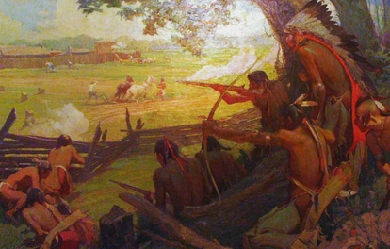
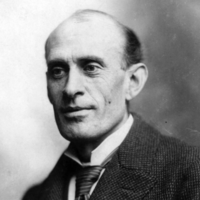
Eugene Field, Sr. (September 2, 1850 – November 4, 1895) was an American writer, best known for his children's poetry and humorous essays. Field was born in St. Louis, Missouri where today his boyhood home is open to the public as The Eugene Field House and St. Louis Toy Museum. After the death of his mother in 1856, he was raised by a cousin, Mary Field French, in Amherst, Massachusetts.

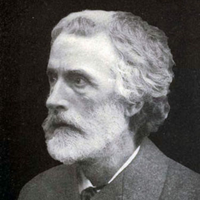
George Meredith, OM (12 February 1828 – 18 May 1909) was an English novelist and poet of the Victorian era. Meredith was born in Portsmouth, England, a son and grandson of naval outfitters. His mother died when he was five. At the age of 14 he was sent to a Moravian School in Neuwied, Germany, where he remained for two years. He read law and was articled as a solicitor, but abandoned that profession for journalism and poetry. He collaborated with Edward Gryffydh Peacock, son of Thomas Love Peacock in publishing a privately circulated literary magazine, the Monthly Observer. He married Edward Peacock's widowed sister Mary Ellen Nicolls in 1849 when he was twenty-one years old and she was twenty-eight. He collected his early writings, first published in periodicals, into Poems, published to some acclaim in 1851. His wife ran off with the English Pre-Raphaelite painter Henry Wallis [1830–1916] in 1858; she died three years later. The collection of "sonnets" entitled Modern Love (1862) came of this experience as did The Ordeal of Richard Feverel, his first "major novel". He married Marie Vulliamy in 1864 and settled in Surrey. He continued writing novels and poetry, often inspired by nature. His writing was characterised by a fascination with imagery and indirect references. He had a keen understanding of comedy and his Essay on Comedy (1877) is still quoted in most discussions of the history of comic theory. In The Egoist, published in 1879, he applies some of his theories of comedy in one of his most enduring novels. Some of his writings, including The Egoist, also highlight the subjugation of women during the Victorian period. During most of his career, he had difficulty achieving popular success. His first truly successful novel was Diana of the Crossways published in 1885. Meredith supplemented his often uncertain writer's income with a job as a publisher's reader. His advice to Chapman and Hall made him influential in the world of letters. His friends in the literary world included, at different times, William and Dante Gabriel Rossetti, Algernon Charles Swinburne, Leslie Stephen, Robert Louis Stevenson, George Gissing and J. M. Barrie. His contemporary Sir Arthur Conan Doyle paid him homage in the short-story The Boscombe Valley Mystery, when Sherlock Holmes says to Dr. Watson during the discussion of the case, "And now let us talk about George Meredith, if you please, and we shall leave all minor matters until to-morrow." Oscar Wilde, in his dialogue The Decay of Lying, implies that Meredith, along with Balzac, is his favourite novelist, saying "Ah, Meredith! Who can define him? His style is chaos illumined by flashes of lightning". In 1868 he was introduced to Thomas Hardy by Frederick Chapman of Chapman & Hall the publishers. Hardy had submitted his first novel, The Poor Man and the Lady. Meredith advised Hardy not to publish his book as it would be attacked by reviewers and destroy his hopes of becoming a novelist. Meredith felt the book was too bitter a satire on the rich and counselled Hardy to put it aside and write another 'with a purely artistic purpose' and more of a plot. Meredith spoke from experience; his first big novel, The Ordeal of Richard Feverel, was judged so shocking that Mudie's circulating library had cancelled an order of 300 copies. Hardy continued to try and publish the novel: however it remained unpublished, though he clearly took Meredith's advice seriously. Before his death, Meredith was honoured from many quarters: he succeeded Lord Tennyson as president of the Society of Authors; in 1905 he was appointed to the Order of Merit by King Edward VII. In 1909, he died at his home in Box Hill, Surrey. Works Essays * Essay on Comedy (1877) Novels * The Shaving of Shagpat (1856) * Farina (1857) * The Ordeal of Richard Feverel (1859) * Evan Harrington (1861) * Emilia in England (1864), republished as Sandra Belloni in 1887 * Rhoda Fleming (1865) * Vittoria (1867) * The Adventures of Harry Richmond (1871) * Beauchamp's Career (1875) * The House on the Beach (1877) * The Case of General Ople and Lady Camper (1877) * The Tale of Chloe (1879) * The Egoist (1879) * The Tragic Comedians (1880) * Diana of the Crossways (1885) * One of our Conquerors (1891) * Lord Ormont and his Aminta (1894) * The Amazing Marriage (1895) * Celt and Saxon (1910) Poetry * Poems (1851) * Modern Love (1862) * Poems and Lyrics of the Joy of Earth (1883) * The Woods of Westermain (1883) * A Faith on Trial (1885) * Ballads and Poems of Tragic Life (1887) * A Reading of Earth (1888) * The Empty Purse (1892) * Odes in Contribution to the Song of French History(1898) * A Reading of Life (1901) * Last Poems (1909) * Lucifer in Starlight * The Lark Ascending (the inspiration for Vaughan Williams' instrumental work The Lark Ascending). References Wikipedia - http://en.wikipedia.org/wiki/George_Meredith
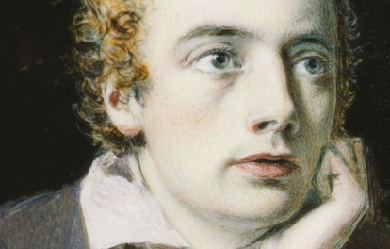
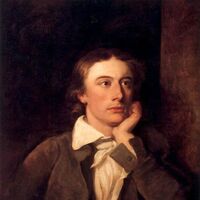
English Romantic poet John Keats was born on October 31, 1795, in London. The oldest of four children, he lost both his parents at a young age. His father, a livery-stable keeper, died when Keats was eight; his mother died of tuberculosis six years later. After his mother's death, Keats's maternal grandmother appointed two London merchants, Richard Abbey and John Rowland Sandell, as guardians. Abbey, a prosperous tea broker, assumed the bulk of this responsibility, while Sandell played only a minor role. When Keats was fifteen, Abbey withdrew him from the Clarke School, Enfield, to apprentice with an apothecary-surgeon and study medicine in a London hospital. In 1816 Keats became a licensed apothecary, but he never practiced his profession, deciding instead to write poetry.
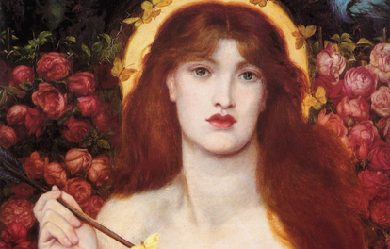
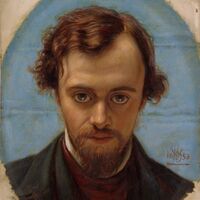
Dante Gabriel Rossetti (12 May 1828 – 9 April 1882) was an English poet, illustrator, painter and translator. He founded the Pre-Raphaelite Brotherhood in 1848 with William Holman Hunt and John Everett Millais, and was later to be the main inspiration for a second generation of artists and writers influenced by the movement, most notably William Morris and Edward Burne-Jones. His work also influenced the European Symbolists and was a major precursor of the Aesthetic movement.
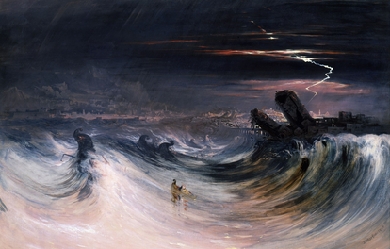
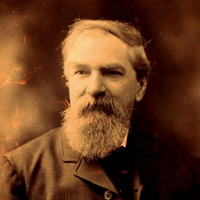
Joseph Skipsey (1832– 1903) was a Northumberland born poet and songwriter in the middle and late 19th century. His best known work is arguably “The Hartley Calamity” about the Hartley Colliery Disaster, a devastating mining accident in Hartley, Northumberland, England in 1862 in which 204 lives were lost. He was known as “The Pitman Poet”.
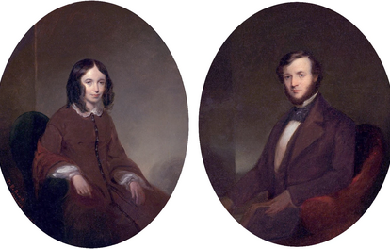
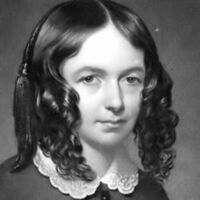
Elizabeth Barrett Browning (6 March 1806 – 29 June 1861) was one of the most prominent poets of the Victorian era. Her poetry was widely popular in both England and the United States during her lifetime. A collection of her last poems was published by her husband, Robert Browning, shortly after her death. Barrett Browning opposed slavery and published two poems highlighting the barbarity of slavers and her support for the abolitionist cause. The poems opposing slavery include "The Runaway Slave at Pilgrim's Point" and "A Curse for a Nation"; in the first she describes the experience of a slave woman who is whipped, raped, and made pregnant as she curses the slavers. She declared herself glad that the slaves were "virtually free" when the Emancipation Act abolishing slavery in British colonies was passed in 1833, despite the fact that her father believed that Abolitionism would ruin his business.

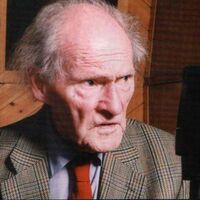
Ronald Stuart Thomas (29 March 1913 – 25 September 2000), published as R. S. Thomas, was a Welsh poet and Anglican priest who was noted for his nationalism, spirituality and deep dislike of the anglicisation of Wales. In 1955, John Betjeman, in his introduction to the first collection of Thomas’s poetry to be produced by a major publisher, Song at the Year's Turning, predicted that Thomas would be remembered long after Betjeman himself was forgotten. M. Wynn Thomas said: "He was the Aleksandr Solzhenitsyn of Wales because he was such a troubler of the Welsh conscience. He was one of the major English language and European poets of the 20th century." R. S. Thomas was born in Cardiff, the only child of Thomas Hubert and Margaret (née Davis). The family moved to Holyhead in 1918 because of his father's work in the merchant navy. He was awarded a bursary in 1932 to study at Bangor University, where he read Classics. In 1936, having completed his theological training at St. Michael's College, Llandaff, he was ordained as a priest in the Church in Wales. From 1936 to 1940 he was the curate of Chirk, Denbighshire, where he met his future wife, Mildred (Elsi) Eldridge, an English artist. He subsequently became curate at Tallarn Green, Flintshire. Thomas and Mildred were married in 1940 and remained together until her death in 1991. Their son, Gwydion, was born 29 August 1945. The Thomas family lived on a tiny income and lacked the comforts of modern life, largely by the Thomas's choice. One of the few household amenities the family ever owned, a vacuum cleaner, was rejected because Thomas decided it was too noisy. For twelve years, from 1942 to 1954, Thomas was rector at Manafon, near Welshpool in rural Montgomeryshire. It was during his time at Manafon that he first began to study Welsh and that he published his first three volumes of poetry, The Stones of the Field, An Acre of Land and The Minister. Thomas' poetry achieved a breakthrough with the publication of his fourth book Song at the Year's Turning, in effect a collected edition of his first three volumes, which was critically very well received and opened with Betjeman's famous introduction. His position was also helped by winning the Royal Society of Literature's Heinemann Award. Thomas learnt the Welsh language at age 30, too late in life, he said, to be able to write poetry in it. The 1960s saw him working in a predominantly Welsh speaking community and he later wrote two prose works in Welsh, Neb (English: Nobody), an ironic and revealing autobiography written in the third person, and Blwyddyn yn Llŷn (English: A Year in Llŷn). In 1964 he won the Queen's Gold Medal for Poetry. From 1967 to 1978 he was vicar at St Hywyn's Church (built 1137) in Aberdaron at the western tip of the Llŷn Peninsula. Thomas retired from church ministry in 1978 and he and his wife relocated to Y Rhiw, in "a tiny, unheated cottage in one of the most beautiful parts of Wales, where, however, the temperature sometimes dipped below freezing", according to Theodore Dalrymple. Free from the constraints of the church he was able to become more political and active in the campaigns that were important to him. He became a fierce advocate of Welsh nationalism, although he never supported Plaid Cymru because he believed they did not go far enough in their opposition to England. In 1996 Thomas was nominated for the Nobel Prize for Literature (the winner that year was Seamus Heaney). Thomas died on 25 September 2000, aged 87, at his home at Pentrefelin near Criccieth. He had been ill with heart trouble and had been treated at Gwynnedd hospital until two weeks before he died. After his death an event celebrating his life and poetry was held in Westminster Abbey with readings from Heaney, Andrew Motion, Gillian Clarke and John Burnside. Thomas's ashes are buried close to the door of St. John's Church, Porthmadog, Gwynedd. Beliefs Thomas believed in what he called "the true Wales of my imagination", a Welsh-speaking, aboriginal community that was in tune with the natural world. He viewed western (specifically English) materialism and greed, represented in the poetry by his mythical "Machine", as the destroyers of community. He could tolerate neither the English who bought up Wales and, in his view, stripped it of its wild and essential nature, nor the Welsh whom he saw as all too eager to kowtow to English money and influence. This may help explain why Thomas was an ardent supporter of CND and described himself as a pacifist but also why he supported the Meibion Glyndŵr fire-bombings of English-owned holiday cottages in rural Wales. On this subject he said in 1998, "what is one death against the death of the whole Welsh nation?" He was also active in wildlife preservation and worked with the RSPB and Welsh volunteer organisations for the preservation of the Red Kite. He resigned his RSPB membership over their plans to introduce non-native kites to Wales. Thomas's son, Gwydion, a resident of Thailand, recalls his father's sermons, in which he would "drone on" to absurd lengths about the evil of refrigerators, washing machines, televisions and other modern devices. Thomas preached that they were all part of the temptation of scrambling after gadgets rather than attending to more spiritual needs. "It was the Machine, you see", Gwydion Thomas explained to a biographer. "This to a congregation that didn’t have any of these things and were longing for them." Although he may have taken some ideas to extreme lengths, Theodore Dalrymple wrote, Thomas "was raising a deep and unanswered question: What is life for? Is it simply to consume more and more, and divert ourselves with ever more elaborate entertainments and gadgetry? What will this do to our souls?" Although he was a cleric, he was not always charitable and was known for being awkward and taciturn. Some critics have interpreted photographs of him as indicating he was "formidable, bad-tempered, and apparently humorless." Works Almost all of Thomas's work concerns the Welsh landscape and the Welsh people, themes with both political and spiritual subtext. His views on the position of the Welsh people, as a conquered people are never far below the surface. As a cleric, his religious views are also present in his works. His earlier works focus on the personal stories of his parishioners, the farm labourers and working men and their wives, challenging the cosy view of the traditional pastoral poem with harsh and vivid descriptions of rural lives. The beauty of the landscape, although ever-present, is never suggested as a compensation for the low pay or monotonous conditions of farm work. This direct view of "country life" comes as a challenge to many English writers writing on similar subjects and challenging the more pastoral works of such as contemporary poets as Dylan Thomas. Thomas's later works were of a more metaphysical nature, more experimental in their style and focusing more overtly on his spirituality. Laboratories of the Spirit (1975) gives, in its title, a hint at this development and also reveals Thomas's increasing experiments with scientific metaphor. He described this shift as an investigation into the "adult geometry of the mind".} Fearing that poetry was becoming a dying art, inaccessible to those who most needed it, "he attempted to make spiritually minded poems relevant within, and relevant to, a science-minded, post-industrial world", to represent that world both in form and in content even as he rejected its machinations. Despite his nationalism Thomas could be hard on his fellow countrymen. Often his works read as more of a criticism of Welshness than a celebration. He himself said there is a "lack of love for human beings" in his poetry. Other critics have not been so harsh. Al Alvarez said: "He was wonderful, very pure, very bitter but the bitterness was beautifully and very sparely rendered. He was completely authoritative, a very, very fine poet, completely off on his own, out of the loop but a real individual. It's not about being a major or minor poet. It's about getting a work absolutely right by your own standards and he did that wonderfully well." Thomas's final works commonly sold 20,000 copies in Britain alone. Books * The Stones of the Field (1946) * An Acre of Land (1952) * The Minister (1953) * Song at the Year's Turning (1955) * Poetry for Supper (1958) * Tares, [Corn-weed] (1961) * The Bread of Truth (1963) * Words and the Poet (1964, lecture) * Pietà (1966) * Not That He Brought Flowers (1968) * H'm (1972) * What is a Welshman? (1974) * Laboratories of the Spirit (1975) * Abercuawg (1976, lecture) * The Way of It (1977) * Frequencies (1978) * Between Here and Now (1981) * Ingrowing Thoughts (1985) * Neb (1985) in Welsh, autobiography, written in the third person * Experimenting with an Amen (1986) * Welsh Airs (1987) * The Echoes Return Slow (1988) * Counterpoint (1990) * Blwyddyn yn Llŷn (1990) in Welsh * Pe Medrwn Yr Iaith : ac ysgrifau eraill ed. Tony Brown & Bedwyr L. Jones, essays in Welsh (1990) * Mass for Hard Times (1992) * No Truce with the Furies (1995) * Autobiographies (1997, collection of prose writings) * Residues (2002, posthumously) References Wikipedia - http://en.wikipedia.org/wiki/R._S._Thomas
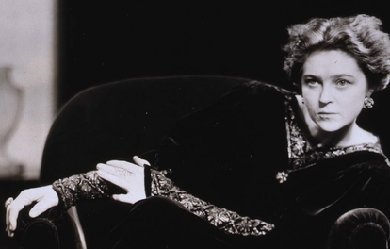
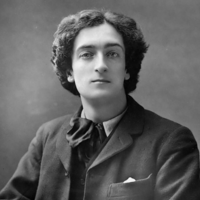
Richard Le Gallienne (20 January 1866– 15 September 1947) was an English author and poet. The American actress Eva Le Gallienne (1899–1991) was his daughter, by his second marriage. Life and career He was born in Liverpool. He started work in an accountant’s office, but abandoned this job to become a professional writer. The book My Ladies’ Sonnets appeared in 1887, and in 1889 he became, for a brief time, literary secretary to Wilson Barrett. He joined the staff of the newspaper The Star in 1891, and wrote for various papers by the name Logroller. He contributed to The Yellow Book, and associated with the Rhymers’ Club. His first wife, Mildred Lee, died in 1894. They had one daughter, Hesper. In 1897 he married the Danish journalist Julie Norregard, who left him in 1903 and took their daughter Eva to live in Paris. Le Gallienne subsequently became a resident of the United States. He has been credited with the 1906 translation from the Danish of Peter Nansen’s Love’s Trilogy; but most sources and the book itself attribute it to Julie. They were divorced in June 1911. On October 27, 1911, he married Mrs. Irma Perry, née Hinton, whose previous marriage to her first cousin, the painter and sculptor Roland Hinton Perry, had been dissolved in 1904. Le Gallienne and Irma had known each other for some time, and had jointly published an article as early as 1906. Irma’s daughter Gwendolyn Perry subsequently called herself “Gwen Le Gallienne”, but was almost certainly not his natural daughter, having been born in 1900. Le Gallienne and Irma lived in Paris from the late 1920s, where Gwen was by then an established figure in the expatriate bohéme (see, e.g.) and where he wrote a regular newspaper column. Le Gallienne lived in Menton on the French Riviera during the 1940s. During the Second World War Le Gallienne was prevented from returning to his Menton home and lived in Monaco for the rest of the war. Le Gallienne’s house in Menton was occupied by German troops and his library was nearly sent back to Germany as bounty. Le Gallienne appealed to a German officer in Monaco who allowed him to return to Menton to collect his books. During the war Le Gallienne refused to write propaganda for the local German and Italian authorities, and with no income, once collapsed in the street due to hunger. In later times he knew Llewelyn Powys and John Cowper Powys. Asked how to say his name, he told The Literary Digest the stress was “on the last syllable: le gal-i-enn’. As a rule I hear it pronounced as if it were spelled ‘gallion,’ which, of course, is wrong.” (Charles Earle Funk, What’s the Name, Please?, Funk & Wagnalls, 1936.) A number of his works are now available online. He also wrote the foreword to “The Days I Knew” by Lillie Langtry 1925, George H. Doran Company on Murray Hill New York. Works * My Ladies’ Sonnets and Other Vain and Amatorious Verses (1887) * Volumes in Folio (1889) poems * George Meredith: Some Characteristics (1890) * The Book-Bills of Narcissus (1891) * English Poems (1892) * The Religion of a Literary Man (1893) * Robert Louis Stevenson: An Elegy and Other Poems (1895) * Quest of the Golden Girl (1896) novel * Prose Fancies (1896) * Retrospective Reviews (1896) * Rubaiyat of Omar Khayyam (1897) * If I Were God (1897) * The Romance Of Zion Chapel (1898) * In Praise of Bishop Valentine (1898) * Young Lives (1899) * Sleeping Beauty and Other Prose Fancies (1900) * The Worshipper Of The Image (1900) * The Love Letters of the King, or The Life Romantic (1901) * An Old Country House (1902) * Odes from the Divan of Hafiz (1903) translation * Old Love Stories Retold (1904) * Painted Shadows (1904) * Romances of Old France (1905) * Little Dinners with the Sphinx and other Prose Fancies (1907) * Omar Repentant (1908) * Wagner’s Tristan and Isolde (1909) Translator * Attitudes and Avowals (1910) essays * October Vagabonds (1910) * New Poems (1910) * The Maker of Rainbows and Other Fairy-Tales and Fables (1912) * The Lonely Dancer and Other Poems (1913) * The Highway to Happiness (1913) * Vanishing Roads and Other Essays (1915) * The Silk-Hat Soldier and Other Poems in War Time (1915) * The Chain Invisible (1916) * Pieces of Eight (1918) * The Junk-Man and Other Poems (1920) * A Jongleur Strayed (1922) poems * Woodstock: An Essay (1923) * The Romantic '90s (1925) memoirs * The Romance of Perfume (1928) * There Was a Ship (1930) * From a Paris Garret (1936) memoirs * The Diary of Samuel Pepys (editor) References Wikipedia—https://en.wikipedia.org/wiki/Richard_Le_Gallienne


